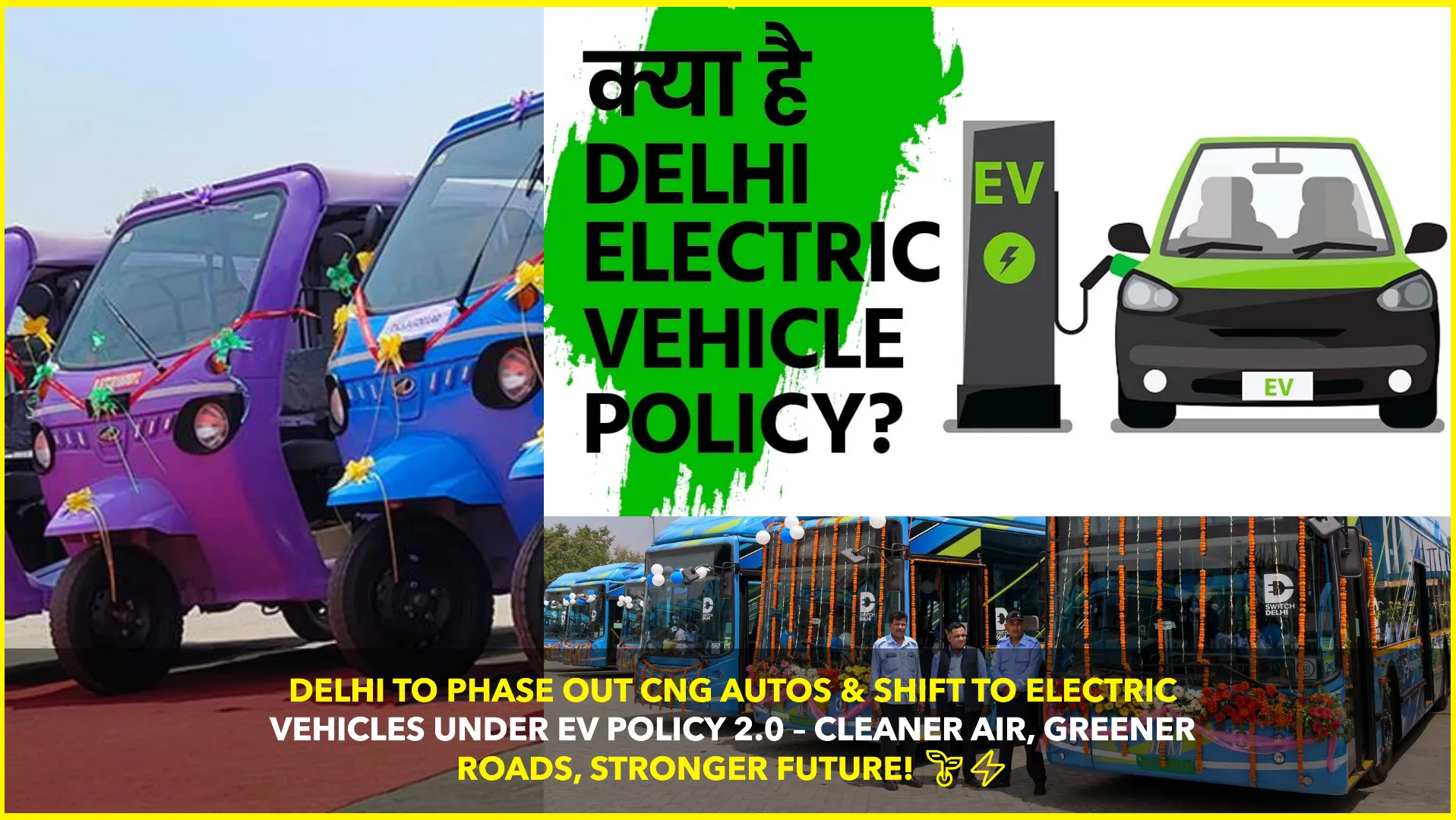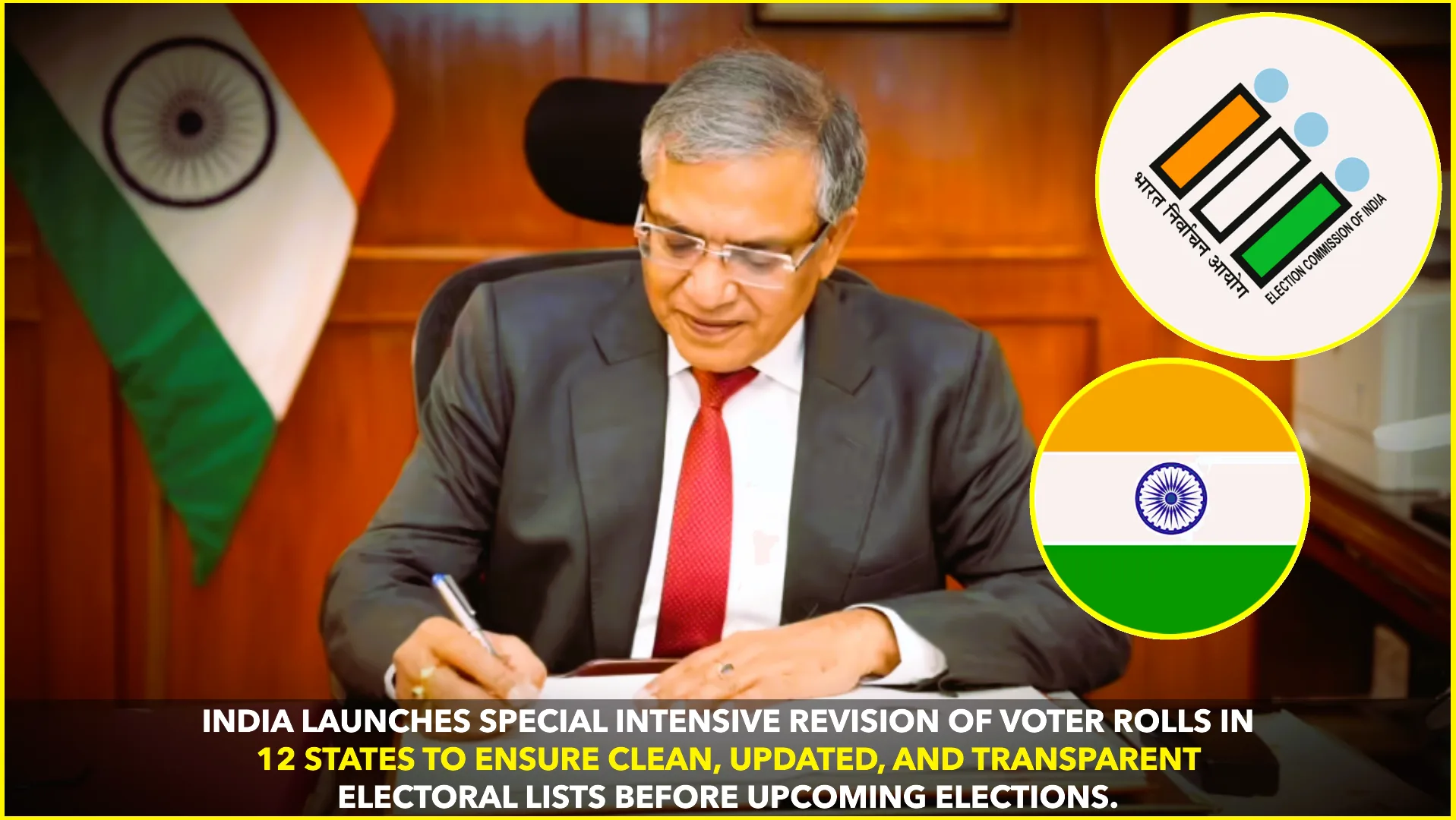In a significant move to combat air pollution and promote sustainable transportation, the Delhi government has introduced the draft Electric Vehicle (EV) Policy 2.0. This policy aims to transition the city’s transportation system towards electric mobility, targeting various vehicle categories, including CNG autorickshaws, commercial three-wheelers, and public service vehicles.
Phasing Out CNG Autorickshaws and Commercial Three-Wheelers
A central component of the EV Policy 2.0 is the gradual elimination of CNG-powered autorickshaws. Starting August 15, 2025, the registration of new CNG autorickshaws will be halted, and existing permits will not be renewed. Instead, these permits will be replaced with those for electric autorickshaws (e-autos). Additionally, all CNG autorickshaws older than ten years must either be retrofitted with electric batteries or decommissioned .
Similarly, the policy mandates that from August 15, 2025, no new registrations of diesel, petrol, or CNG three-wheeler goods carriers will be allowed. This move is aimed at reducing emissions from commercial vehicles and encouraging the adoption of cleaner alternatives .ETAuto.com+3The Economic Times+3humansofev.info+3
Transitioning Public Service Vehicles to Electric
The policy sets an ambitious target for public service vehicles, including those used for waste management and public transportation. All such vehicles operated by municipal bodies like the Municipal Corporation of Delhi (MCD), New Delhi Municipal Council (NDMC), and Delhi Jal Board (DJB) are required to transition to electric vehicles by December 31, 2027 .
For public transport, the Delhi Transport Corporation (DTC) and Delhi Integrated Multi-Modal Transit System (DIMTS) will exclusively operate electric buses for intra-city routes. However, BS VI-compliant buses will still be permitted for interstate services .ETAuto.com+1humansofev.info+1
Encouraging Electric Two-Wheelers
The policy also addresses the two-wheeler segment, proposing a ban on the registration of new petrol, diesel, and CNG two-wheelers starting August 15, 2026. This measure is designed to accelerate the adoption of electric two-wheelers among the city’s residents .
Incentives and Infrastructure Development
To facilitate this transition, the Delhi government plans to offer various incentives. These include subsidies of up to ₹5,500 for electric cycles and ₹30,000 for e-rickshaws. Additionally, the policy mandates that new buildings allocate 20% of parking spaces for EV charging, while existing buildings must provide at least 5% .
Despite these initiatives, challenges remain. Currently, only 10% of the planned 48,000 charging points are operational, highlighting the need for accelerated infrastructure development to support the growing number of electric vehicles .
Conclusion
Delhi’s EV Policy 2.0 represents a comprehensive approach to reducing vehicular emissions and promoting sustainable transportation. By setting clear timelines and providing incentives, the policy aims to transform the city’s transportation landscape. However, successful implementation will require concerted efforts in infrastructure development and stakeholder engagement to overcome existing challenges.humansofev.info










